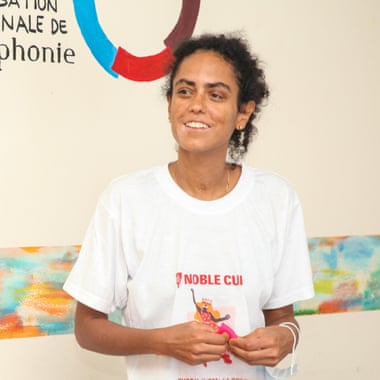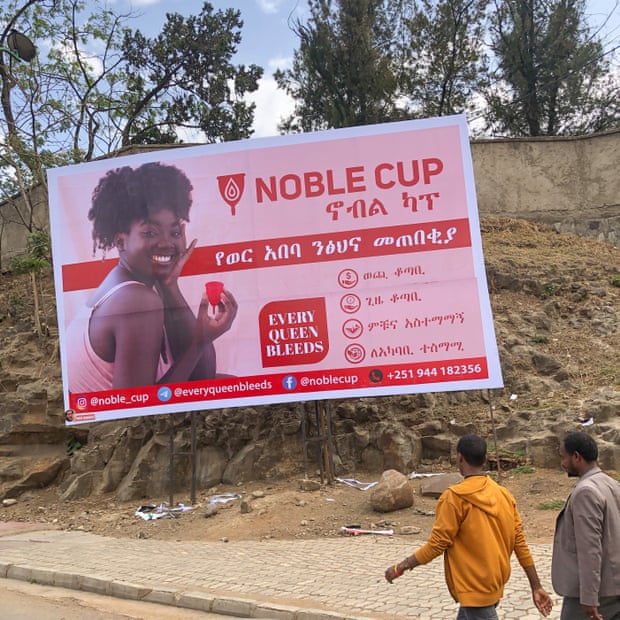“Car elements,” states Sara Eklund, shaking her head. “They had no thought what they were, so they took a wild guess.” Eklund had hurdles importing the 1st menstrual cups into Ethiopia, but she hadn’t predicted acquiring to demonstrate to puzzled customs officials what the small, pink silicone cups were being employed for.
She had last but not least received a green gentle to carry an initial 200 Noble Cups into the state, only to have them confiscated by the Ethiopian Profits and Customs Authority (Erca) – above evident paperwork difficulties. But Eklund was not deterred. “I considered: go big or go residence.” So she went for 5,000 in her 2nd shipment.

There was a new hitch. Erca categorised the product or service as a luxury merchandise, and imposed a 69{09e594db938380acbda72fd0ffbcd1ef1c99380160786adb3aba3c50c4545157} tax. “It was insanity,” suggests Eklund. “The program is produced to infuriate and frustrate.”
With some determination from Eklund, Noble Cup is now on sale in additional than 30 retailers throughout the cash, Addis Ababa, with plans to expand.
At 230 birr (£3.50), the cups are prohibitively high priced for most women and women in Ethiopia, wherever only 28{09e594db938380acbda72fd0ffbcd1ef1c99380160786adb3aba3c50c4545157} of ladies report having “everything they need” to deal with their durations, and 25{09e594db938380acbda72fd0ffbcd1ef1c99380160786adb3aba3c50c4545157} do not use any variety of sanitary merchandise, relying as an alternative on whichever they can discover: rags, newspaper, even cloths stuffed with ash.
Eklund hopes that advertising the item will assistance stimulate a a lot more open discussion, and lessen the stigma and shame all-around menstrual overall health. “This is one thing each and every solitary female goes as a result of each individual month,” she suggests.
But disgrace is deeply embedded, suggests Mekdim Hailu, campaigner at WaterAid Ethiopia. “Pharmacists even now hand sanitary pads to prospects in newspaper and a plastic bag. Even as younger girls in an city area, my pals and I nonetheless use code phrases for durations.”
Hailu welcomes cups as an eco-helpful different but suggests even these who could find the money for to buy them – and have obtain to clean up h2o – may well stay clear of them for cultural factors.
“We want ladies and gals to have quite a few possibilities, but it is a foreign notion to set an exterior solution inside of your vagina – even tampons are not utilized below – so there is a large amount to be accomplished in conditions of recognition of this [product].”
Born in Virginia to an Ethiopian mother and American father, Eklund went to higher university in Ethiopia but returned to the US for school. She was inspired to start off her organization after her individual discovery of menstrual cups, a “eureka moment” in her freshman calendar year.
She regarded as launching a charity to provide cups for free, but her mom, a businesswoman, knocked that notion down. “She instructed me, ‘If it’s going to be something, it has to be a small business – this strategy that Africans just want totally free stuff is improper.’”

“She was correct,” states Eklund. “I never believe donating the cups would have had the same electricity. When females opt for to invest in a product, they are additional invested in it. They will share tales about it. That is when behavioural alter arrives.”
Eklund’s crew operates simple biology workshops in schools, introducing kids to period items. They are also active on social media.
“It’s no coincidence that the increase of the menstrual motion has coincided with the growth of social media,” suggests Eklund. She cites a woman from Hawassa who contacted the group following viewing a TikTok video clip. “We despatched her some, and she’s turn out to be a sort of unofficial ambassador for us,” says Eklund.
Indicator up for Her Stage to listen to immediately from amazing ladies in the producing globe on the difficulties that issue to them, delivered to your inbox month-to-month:
Sign up for Her Phase – be sure to verify your spam folder for the confirmation e-mail